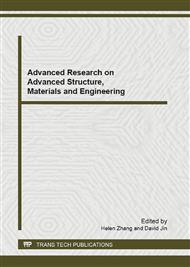p.256
p.260
p.264
p.268
p.272
p.276
p.281
p.289
p.293
Thermal Decomposition of Wood Treated with K2CO3 and Melamine Modified Phenolic Resin by Thermogravimetry–Mass Spectrometry
Abstract:
The flame retardancy of the wood samples treated with K2CO3, melamine modified phenolic resin (MMPR), and their mixture of K2CO3/MMPR was studied with the limiting oxygen index (LOI) method. The thermal degradation process and the composition of the products in gas phase were determined by the thermogravimetry–mass spectrometry (TG–MS) analysis methods. The results showed that the K2CO3 accelerates the dehydration reaction of wood and promote the formation of more H2O, CO2, and char residue, while MMPR can act as the thermal barrier during the combustion of the samples. When the wood sample treated with K2CO3/MMPR, there are the catalysis of K2CO3 and the adiabatic effect of MMPR make the samples have better flame retardancy.
Info:
Periodical:
Pages:
272-275
DOI:
Citation:
Online since:
November 2011
Authors:
Price:
Сopyright:
© 2012 Trans Tech Publications Ltd. All Rights Reserved
Share:
Citation:


